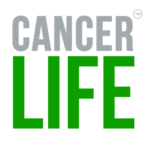The following is transcription of this video.
Hi, Charlie Coleman here, CEO and founder of CancerLife today’s blog post on some news that came out from Susan B Komen the famous breast cancer non-profit in which they announced that the Philadelphia Pittsburgh operation is going to be closed. This is big news, Susan B Komen obviously everyone knows for many years has raised billions and billions dollars, uh, to medical research. Um, you know, one of the first organizations began their fundraising around five Ks and walk for breast cancer. That was their really their primary source. And then obviously, yeah, adding the famous pink ribbon to every consumer brand out there, um, you know, going through directly to corporations to support breast cancer research, which was quite innovative. I want to give them kudos those four, you know, at least the money that they were raising, um, was coming from across, you know, multiple avenues and yeah, and spectrum of providers.
I mean, there’ll be a lot of folks that talk about the fact that only 30% or less of their money raised each year goes to actual research. That gives you the sense of how big their fundraising operation is but I mean to say that, you know, that, that they’re in yeah, haven’t contributed to, um, the breast cancer causes a little, I think, um, disingenuous, but one of the things that I’m wanting to talk about with this blog post is the question that I pose, which is our cancer nonprofits dead.
I think over the last three years, CancerLife has reached out to every cancer non-profit of significance. It’s both the big ones and we all know who they are. I mean, I’ve been down to Atlanta at the American cancer society about five years ago, trying to do a partnership, um, Susan B Komen living beyond breast cancer, um, you know, cancer support community, which was the Gilda’s club.
I’ve spoken all of them and I even went to other smaller ones and the thing that I tried to explain to them was that I felt that their business model was changing in terms of fundraising. I don’t believe in even this is before the pandemic that people have the time to do 5k events. I mean, live strong is another prime example of an organization, you know, um, Lance Armstrong, bike races, um, and that whole community. And when, when Lance left, you know, I think when after Lance left live strong, I think in their major, you know, bike race event, I think it was in Austin, maybe it was in Dallas. Um, I think they lost like $1.6 million on just on that Ben alone. So, you know, the reality is, is, is I felt like these cancer nonprofits days were really numbered that ultimately they had to embrace a new business model.
And that business model is data and research. Um, you know, it’s shocking to all the nonprofits that I’ve spoken to over the years. There’s how lack of, of community that they’ve really created. I mean, you know, a lot of them don’t even are connected to patients they’re connected to the patient’s families. Maybe they, they, you know, they get these donations after the, the person has passed on, you know, their loved one has passed on. So they donate in their loved one’s honor, but they really never really engaged and built a decent community. I mean, some of them have newsletters, um, but you know, they rarely do. They update the data in terms of what is there, when we try that, you know, for example, when we tried to engage one of the major breast cancer nonprofits, we asked them what their open rate is.
The open rate would be a newsletter email, like what percentage of people were opening your emails and they couldn’t even answer it. They don’t even track the data. So they send out these newsletters. And, you know, I guess what I’m saying, you know, to folks out there is I believe that, you know, the traditional methods of cancer nonprofits, uh, fundraising is by going by the way, the dinosaur, and if you’re an existing cancer non-profit, and you’re not thinking about research data and becoming a data company, you’re really going to go by way of Susan B Komen, as I’ve tried to tell you all before, you know, the cancer platform is designed to collect patient reported outcomes, data, which doesn’t exist, which is the hottest, most important data set that pharmaceutic companies are dying to understand the patient experience. So for cancer nonprofits, you know, there’s a few out of out there.
Uh, I can think of LUNGevity and lung cancer because immunotherapies and Keytruda is so critical and there’s so much money around. And that, um, longevity is one there’s, there’s a couple more that are really pushing the envelope with research. Um, the Multiple Myleoma Foundation is probably the premier cancer nonprofit in the space today. And they’ve been working in genetic cancer data for like five years now when it comes to research. But I’m telling you all you, non-profits out there. If you’re not thinking about data research specific to patients, you’re going to be closing offices. So for those patients who think about, you know, these nonprofits and what it all means, um, you know, it’s a new day and, um, the best way that you can contribute money is great. We know that there are a million places to take it.
If you are a Cancer Nonprofit and need a resource here is a link to Harvard Precision Medicine Accelerator which provides a guide to migrate to a data-driven research company, with support from Multiple Myeloma Research Foundation which has led this data revolution for years! Click here to download the tools and guide. https://www.hbs.edu/kraft-accelerator/use-the-tools.html
